One of the advantages of being retired is that an unexpected opportunity to travel can be indulged without consequences. Halfway down a third or fourth bottle of wine last year, we had agreed, apparently, to accompany Former Colleagues, M and B on a trip to Normandy. When the subject came up again and firm proposals were being made this year, also at the third or fourth bottle mark, even a smooth verbal sidestep by Long Suffering Wife could not disguise the fact that we had no idea what they were on about.
While Former Colleague B does not usually notice such things, Former Colleague M always does and she was quick to give an accurate précis of the original discussion. A concomitance of motives for visiting Normandy had been identified. Former Colleagues, living within an hour’s drive of the Channel coast are in the habit of filling up their car with French wine two or three times a year. Long Suffering Wife has a close relative lying in a war grave, which she feels a need to visit.
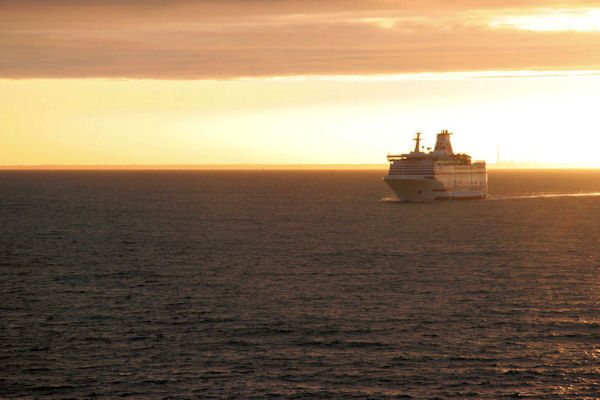
Mid May found us crossing from Portsmouth to Ouistreham on our way to a gite in the small town of Pont d’Ouilly, beside the Orne.
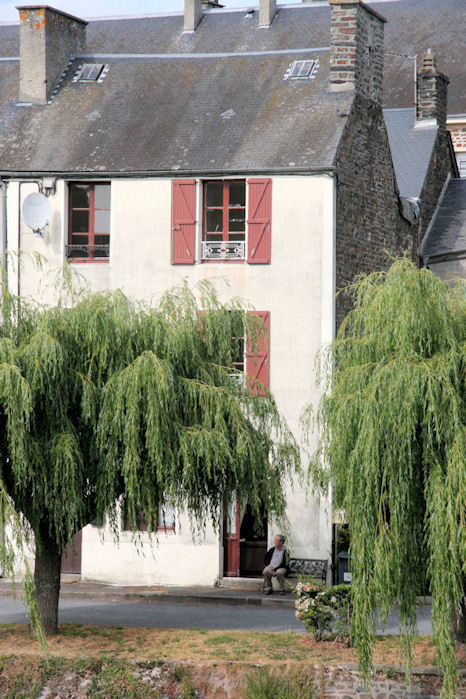
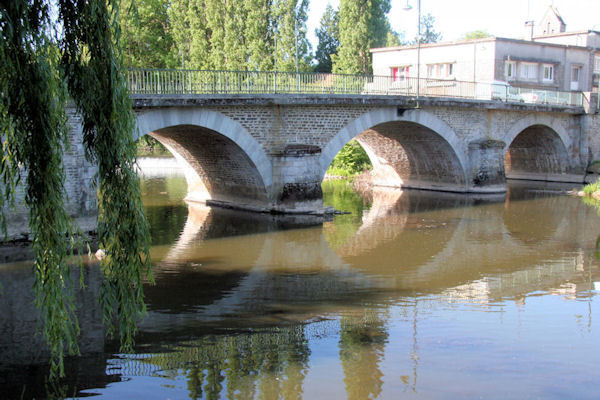
One attractive feature of this holiday break is that Former Colleagues did all the driving – a wonderfully relaxing arrangement - especially at lunch times and although the thought that it might be insensitive to drink without a care, while they could not did cross my mind, I did not detain it long.
The war grave turned out to be a long way from Pont d’Ouilly and getting there and combining it with a visit to Givenchy – Monet’s garden – meant that Former Colleague B had to drive some of the time. I speak with the deep affection forty years of friendship and interesting shared times has created and I am not trying to claim that he is the worst driver in the world, but he has got to be up there, in the top ten.
Many years ago he drove his Landrover with great skill over the roughest of terrain and it is something of a mystery why he is so different on an ordinary road. He sits forward, hunched over the wheel, gripping it tightly, while staring intently ahead. From time to time, as though he has just seen a kitten sitting in his path fifty yards ahead, he twitches the steering wheel so that the car abruptly changes course and, just as abruptly, corrects it. He seems unable to correlate the speed of the car, the noise the engine is making and the gear he is in. Each of these variables acquires arbitrary values while he is driving. From time to time Former Colleague M, sitting calmly in the back seat will quietly suggest that a change up of gear might be in order, when the scream from the engine becomes too distressing. All four travellers are happier when Former Colleague M is driving!
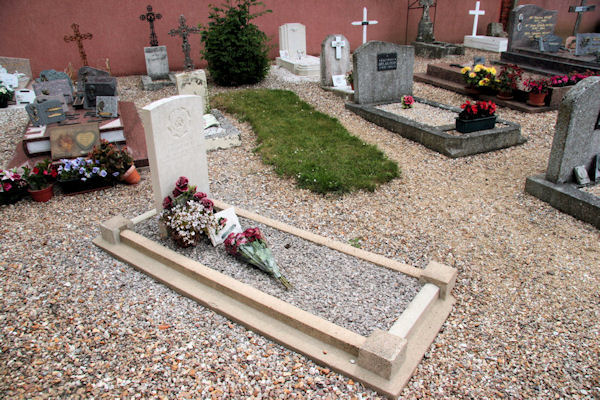
The date on the grave is 8th June 1940. He was 24. Post Dunkirk, he must have been trying to reach Bordeaux, Cherbourg or some other port not yet in German hands during the chaos following the retreat of the British and French armies. Instead there was a fatal encounter with the advancing Germans in this small village. Although his singular presence has made this churchyard a Commonwealth War Grave, the local people found a space for him there and have tended his grave ever since.
Looking down on his lonely and final space is intensely moving. This really is that corner of a foreign field. The thought that the sacrifice of a stranger has been remembered and respected by the local people for seventy years; imagining the life he might have led, by now almost certainly ended; remembering the fiancée, never subsequently to marry, who sent a Christmas card for the rest of her life; recalling the subtle incompleteness affecting the rest of his family – never referred to, but noticed even by a callow visiting suitor such as myself, in a sudden change of subject or brooding silence; all these thoughts and more, flood the brain and the eyes. All eventually resolves into a sort of anger at the loss, the bloody stupid waste of a fine human being who never got to live his life.
It is good to let the village know that, although it has only happened once or twice over the seventy years, someone still remembers and cares about this young man. We leave a bouquet of flowers, sigh, and move on.
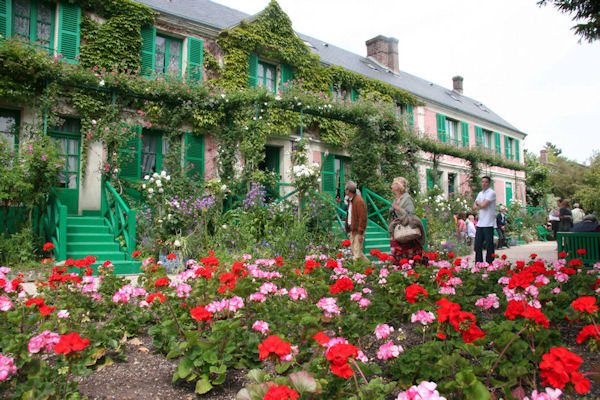
On to Givenchy and Monet’s garden, familiar from visits to countless art galleries. It is beautiful, I suppose, but not particularly enjoyable. Monty Don visited here recently for his TV program and walked round a completely deserted garden. It must have been something like 04.30 in the morning. I never like being wedged in a crowd and that is how you view Givenchy. In places one could lift one’s feet from the ground and still be carried along. I am glad to have been the once, but I doubt we will return, unless we can accompany Monty Don.
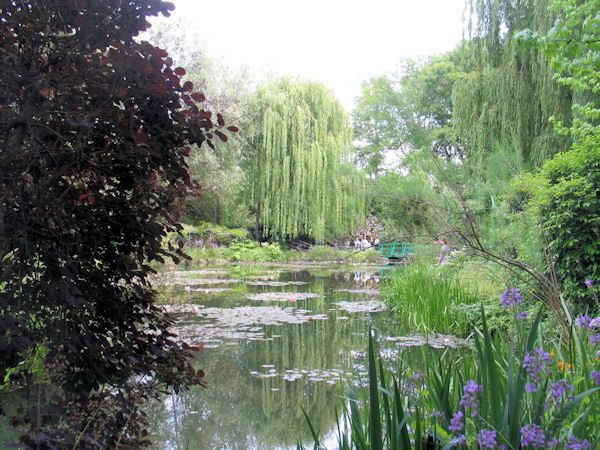
The next day we visit Falaise for some eleventh and twentieth century history. Although William the Conqueror’s castle was heavily damaged during the 1944 Normandy campaign, it has been imaginatively restored and houses a quirky and somehow typically French historical museum, which we much enjoyed.
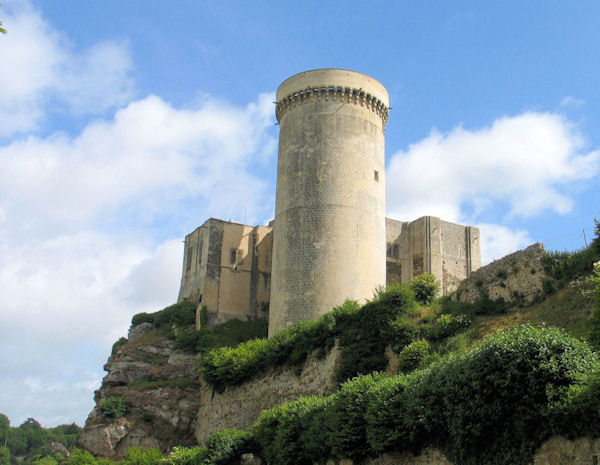
Outside the castle we found a detailed stone frieze, which marks the spot where William (The Bastard) was conceived by a young peasant girl and a randy king.
“Only the French,” muttered Long Suffering Wife, with surprising venom, “would build a monument to mark the site of a seduction!” I could clearly hear the inverted commas around the word seduction in her tone.
The next day we decide to investigate why the area around Pont d’Ouilly is described as Swiss. Driving around we discover that the Orne and its tributaries flow through quite respectable gorges so that it does look mountainous in parts with vertical rock faces. These provide launching points for hang gliding and para gliding and the opportunity to us for some vicarious thrills.
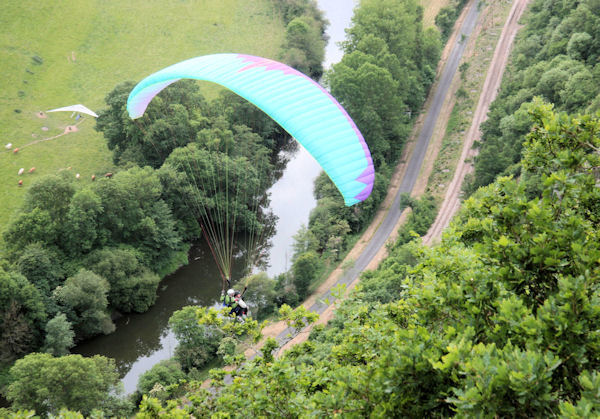
The second objective of the trip is achieved on the way back to the ferry in Ouistreham where we visit a wine merchant. It is interesting to compare the different economic strategies that apply with varying distances between the market and the point of consumption, illustrated by the following facts. Former colleagues buy ten cases of wine, a fraction of the usual load due to our presence. I buy two cases, after a difficult and prolonged negotiation with Long Suffering Wife. Our bill is fifty euros more than Former Colleagues’ for their ten cases of respectable plonk.
“Don’t think you are going to touch any of that until at least Christmas!” says Long Suffering Wife as we squeeze our small haul into the boot.